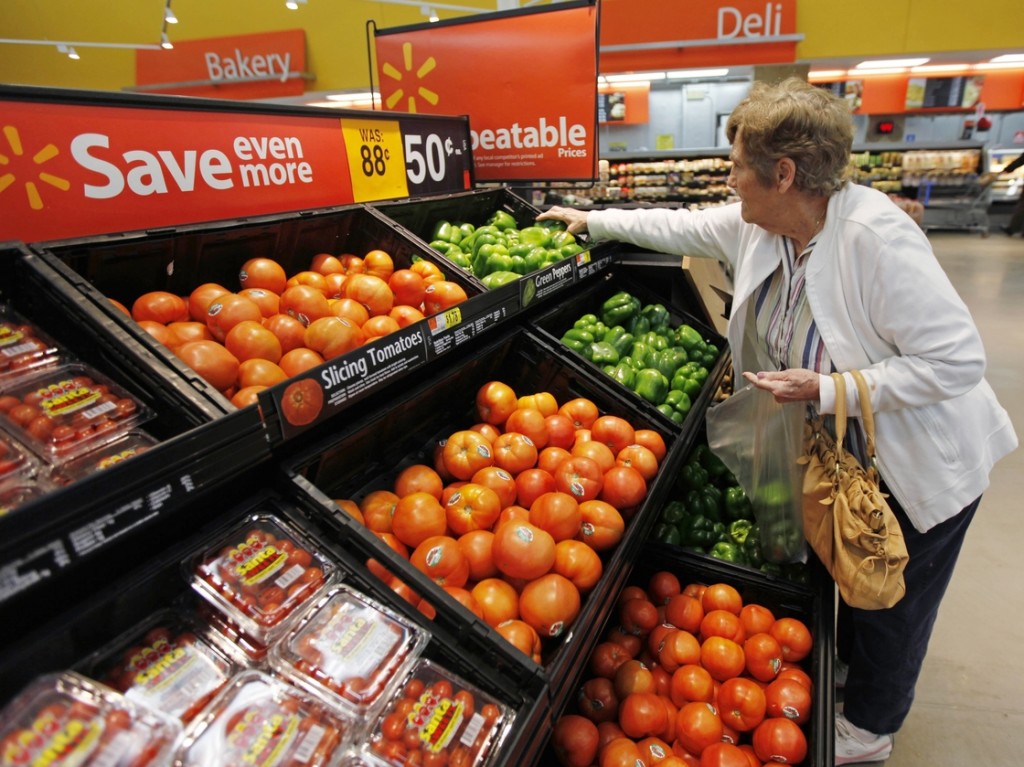
Post by Allison Aubrey, The Salt at NPR Food (6/3/13)
The nation's largest retailer announced Monday that it will be delivering produce from farms to stores faster by buying fruits and vegetables directly from growers.
The plan is to source about 80 percent of fresh produce directly, explained Jack Sinclair, executive vice president of the food business for Wal-Mart U.S., during a conference call that we participated in Monday morning.
In many instances, Sinclair says it will be possible to "cut out the middleman," but he added that local wholesalers will continue to "play an important role for us in the areas we serve."
The announcement comes on the heels of complaints that Wal-Mart isn't staffing its stores with enough employees to stock shelves efficiently or manage produce, resulting in complaints about the freshness of fruits and vegetables on display. As The New York Times reported in April, internal Wal-Mart memos showed the company struggling with "low customer confidence in its produce and poor quality."